
MBChB Medicine Graduate Entry
Chester Medical School

Contents
Foreword
Introduction to Graduate Entry MBChB
The MBChB Course Overview
Key Elements of the Curriculum
Course Structure
Our Students
Learning Sites
Entry Requirements and Fees

 Foreword By Professor Arpan Guha Dean of
Foreword By Professor Arpan Guha Dean of

Chester Medical School
Thank you for your interest in the University of Chester and our MBChB programme. The University of Chester is the fifth oldest higher education establishment in England, with only the universities of Oxford, Cambridge, Durham and London preceding its founding. In 2023, it has been shortlisted for nine WhatUni? Student Choice Awards, including University of the Year and best for Student Life and International.
Our establishment of an MBChB is strategically important to the University, our local NHS partners and our wider region. It is our aspiration that Chester Medical School graduates will:
• be recruited into roles within NHS providers across Chester, remaining in the locality
• deliver compassionate, person-centred approaches to care, within multi-professional teams
• be collaborative and committed to enabling, leading and transforming healthcare delivery, challenging system flaws and using and undertaking research to provide high quality, efficient and evidence-based solutions.
Aside from our regional contribution, our graduates will be equipped for careers in medicine around the globe, and we are confident they will make a difference to individuals and to societies wherever they decide to practise.
We offer excellent opportunities for interprofessional learning, drawing upon the breadth of the University’s provision in Health, Medicine and Society, together with placements in both urban and rural practice settings.
If you choose to study our MBChB and are accepted onto the course, you can expect a warm welcome to Chester Medical School and an outstanding student experience.
Graduate Entry Medicine MBChB
The University of Chester’s medical degree is a four-year graduate entry MBChB course, open to applicants with a previous degree in any discipline. Unlike many traditional MBChB degrees, and not dissimilar to the US and Canadian systems, this allows more mature students to consider becoming a doctor having completed an earlier degree. For example, even if you have a first degree in the arts, humanities or languages but would now like to study medicine, you are eligible to apply. We welcome people from a wide variety of backgrounds who wish to pursue a degree in graduate entry medicine in the UK, not just those with a background in science or allied health care disciplines.
Our first cohort will be welcomed in September 2024.
As a new medical school, we are required to undergo quality assurance by the General Medical Council (UK) to ensure our medical education is of high standard and that we meet the requirements for all UK medical schools. The GMC’s quality assurance process has several stages, culminating in approval for a new medical school to award a Primary Medical Qualification (PMQ). This enables graduates (subject to individual status) to obtain GMC registration and practise medicine in the UK. Chester Medical School is progressing through the stages of the GMC approval process and has agreed the 2024 commencement date with the GMC.
To avoid any risk to students enrolled on a new medical course, each new medical school is required to have a contingency school. The contingency school ensures that students continue and complete their studies. The University of Chester’s contingency partner is the University of Warwick, a Russell Group university, and we work closely with Warwick Medical School to ensure our courses are aligned. We look forward to receiving your application.




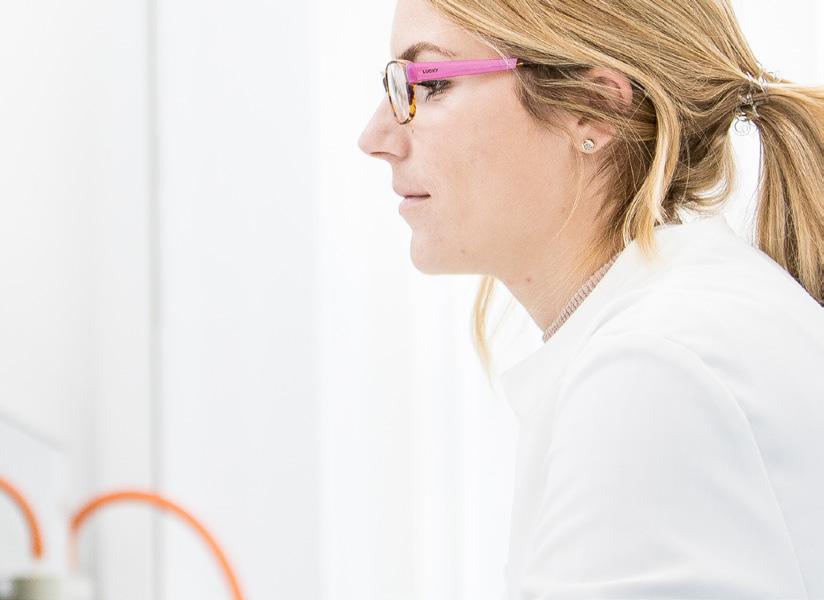
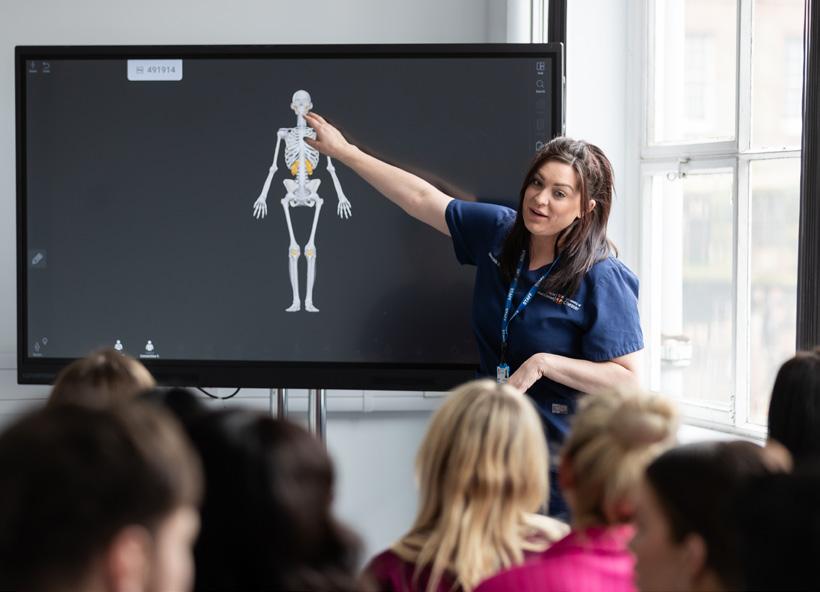
The MBChB Course Overview
The MBChB course curriculum is a spiral curriculum delivered over a four-year period. It includes core University and clinically based modules, with integrated opportunities for ‘student selected components’ (SSC projects).
The first year of the programme, whilst largely based at the University learning site, offers early patient contact and a focus on patient care. This is achieved through case-based learning, community placements and hospital-based teaching, which provide experience within a variety of settings and with a diversity of patient groups. You will have the opportunity to follow patients through their care pathway and learn about the roles of health and social care workers.
Clinical exposure increases across subsequent years, with placements in primary and secondary care settings and across clinical specialties on a rotational basis in between Year 2 and Year 4. Academic days are integrated throughout these years, offering opportunities for additional teaching, support and consolidation of learning.
A strength of the University of Chester MBChB course is the longitudinal integration of core themes throughout the four-year curriculum. These themes provide a scaffolding around which different specialties co-ordinate learning objectives and collaborate to deliver an integrated course. This spiral curriculum approach synchronises the introduction of new content which is appropriate at each level.
Our nine curriculum themes are shown below:
Pharmacology, Prescribing & Therapeutics
Clinical & Communication Skills
Social & Population
Perspectives
Cell & Tissue Biomedicine
Research, Education & Leadership
Values, Law & Ethics
Community Learning
Clinical Anatomy & Imaging
Personal & Professional Development
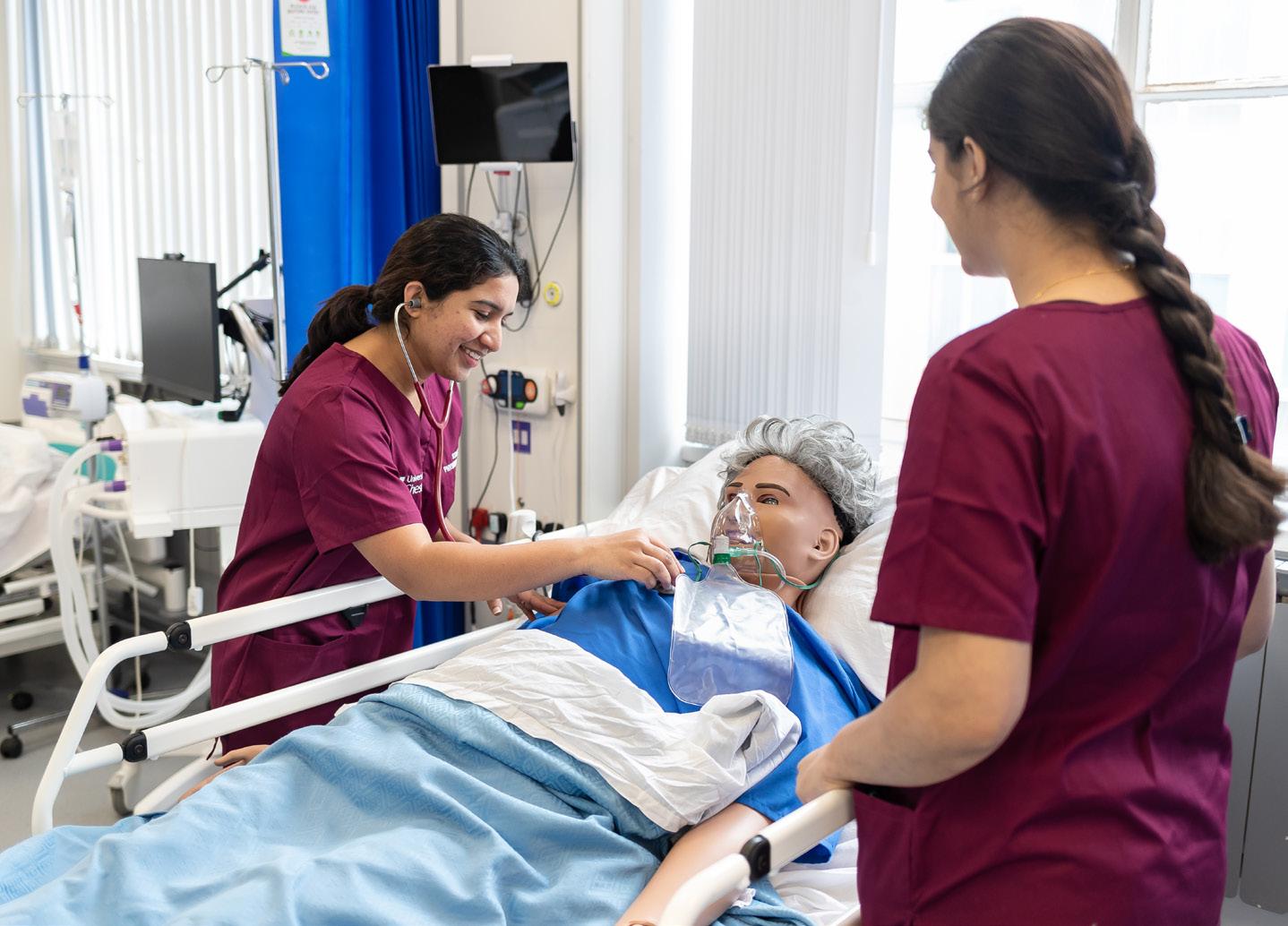

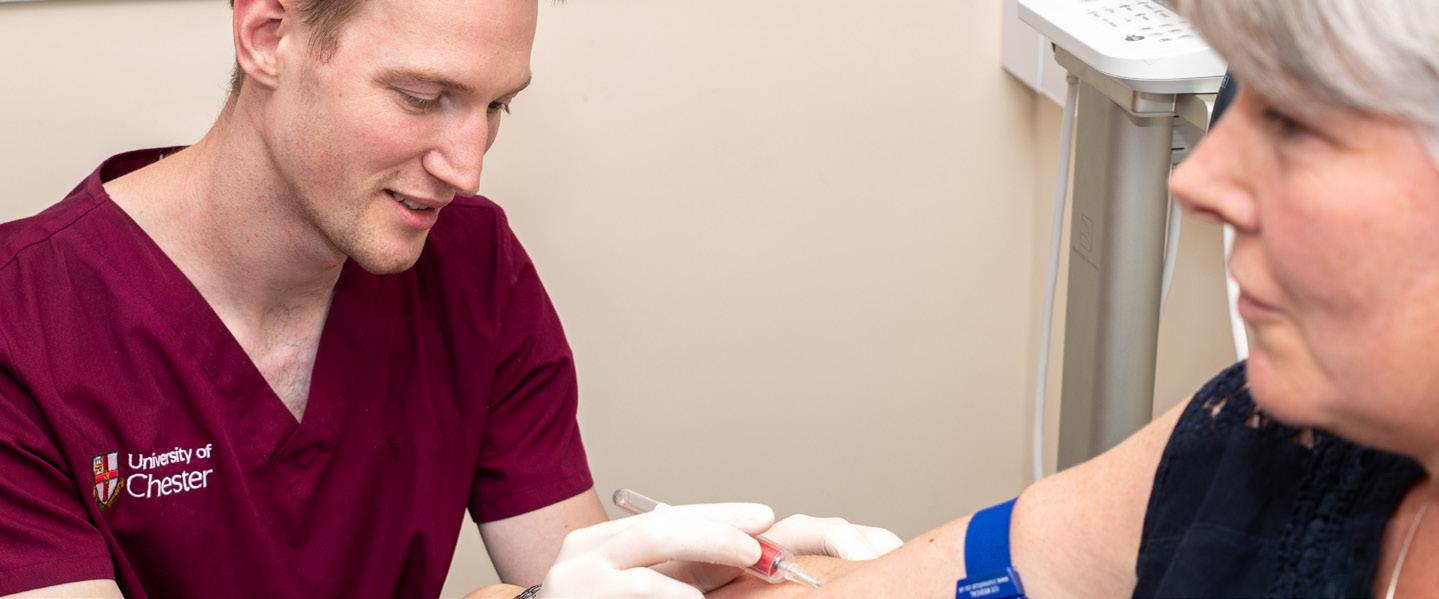
Key Elements Of the Curriculum
Year 1
Year 1 of the four-year MBChB course prepares you for working in a clinical environment by laying down foundational knowledge and skills, which will be built on in later years. Delivery of the core Year 1 course is structured around five five-week blocks, each of which includes a series of clinically-oriented cases where you work with your peers in small groups. Each block includes opportunities for the consolidation of learning and formative assessments, through which you (and we) can monitor your progress and provide support in preparation for the end of year summative written and clinical assessments.
Year 2
Year 2 of the MBChB course has a much greater focus on the application of acquired knowledge from Year 1 into clinical practice. You will rotate through a series of clinical placements with defined learning outcomes and activities involving direct patient contact.
Year 2 begins with a 12-week transitional block, after which the cohort rotates through three ten-week clinical placement blocks, covering medicine, surgery and other specialties, and combining experience in primary and secondary care, with academic days integrated throughout.
Year 3
Year 3 of the MBChB course extends your learning from Years 1 and 2. You will have the opportunity to complete a second Student Selected Component (SSC2) project in an area of interest. This will be followed by a short three-week transitional block to prepare you for the intensive specialist clinical placements (SCPs) which span across Years 3 and 4; these include General Practice, Obstetrics and Gynaecology, Psychiatry, and medical and surgical subspecialities.
Year 4
Year 4 of the MBChB course is the final ‘preparation for practice’ year. You will be based mostly in clinical settings, beginning with the completion of the final two SCPs, after which you will move into an intensive si-week block, known as Advanced Clinical Cases (ACC). Following the assessment period, you will complete an ‘Elective’ block, which gives you the choice and opportunity to broaden your experiences in any area that may be relevant to your future career in medicine. This might be in a different healthcare setting or other context, such as a research laboratory.
The final component of Year 4, before you qualify and move into your first foundation post, is an eight-week ‘Assistantship’ block; you will work alongside foundation doctors and their clinical teams to prepare to begin work as a Foundation doctor in August.
The MBChB Course Overview
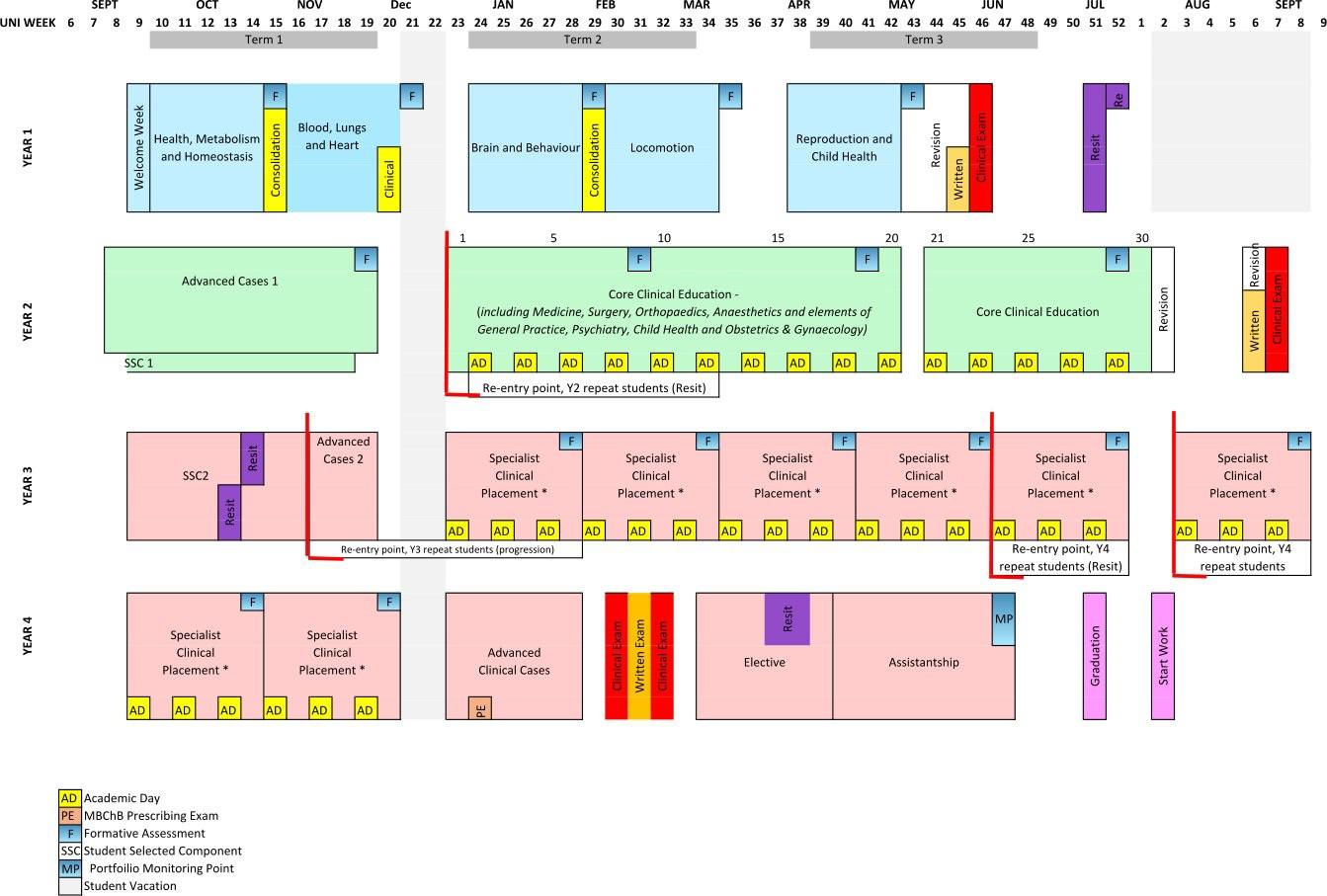
Our Students
We pride ourselves on the quality of support we provide to our students, with a range of support available across all our learning sites. Our Student Support and Wellbeing team is on hand to offer information, advice and guidance to all students on every aspect of their life whilst at University. Our aim is to ensure that everyone is able to experience an enjoyable and enriching student experience.
The University of Chester welcomes students from around the world and understands that moving to a new country can be daunting. We have created a toolkit on our online portal to help you settle into UK life. The information has been put together by the Student Experience team (Induction and Transition), who are here to help international and EU students with a wide range of queries and questions.
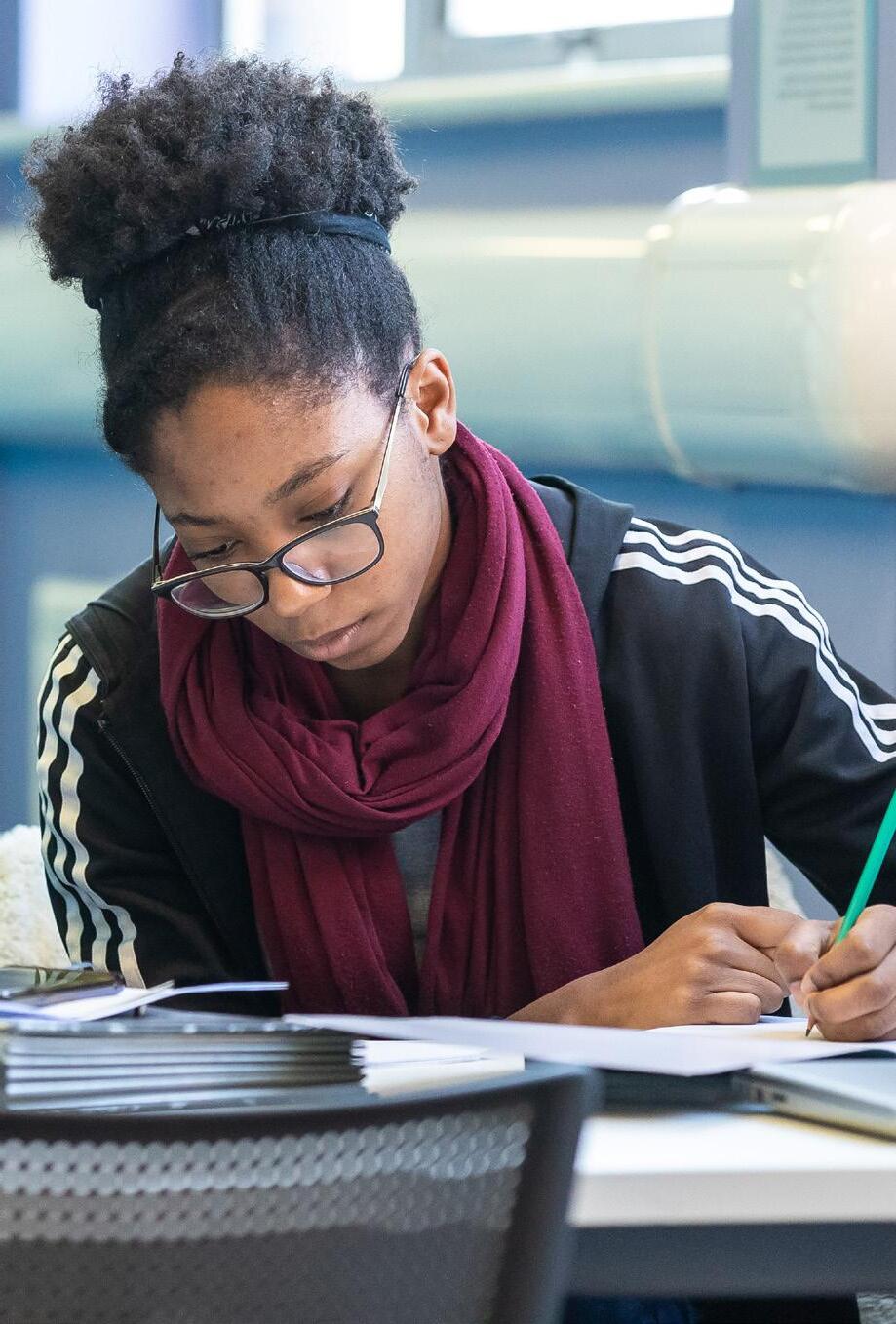
We are delighted that the University of Chester was the most nominated University in the WhatUni? Student Choice Awards 2023. Following more than following more than 35,000 student reviews across 140 UK Universities, we finished fifth in the University of the Year category, third for Lecturers and Teaching Quality and, for the second year running, sixth in the best for International students category. This national recognition, voted for by our current students, is testament to our University’s commitment to providing the very best student experience and support throughout your time with us.
We were also nominated in the Career Prospects category. Our excellent Careers and Employability team is well-equipped to help prepare our MBChB graduates for a career as a UK doctor.
University of Chester
Founded in Faith. Creating Community. Serving Society
Learning Sites
The University of Chester has learning sites across Chester, providing a full range of student services and facilities. The MBChB course is delivered in the Wheeler building, which is located at the southern end of Chester city centre, overlooking the River Dee.
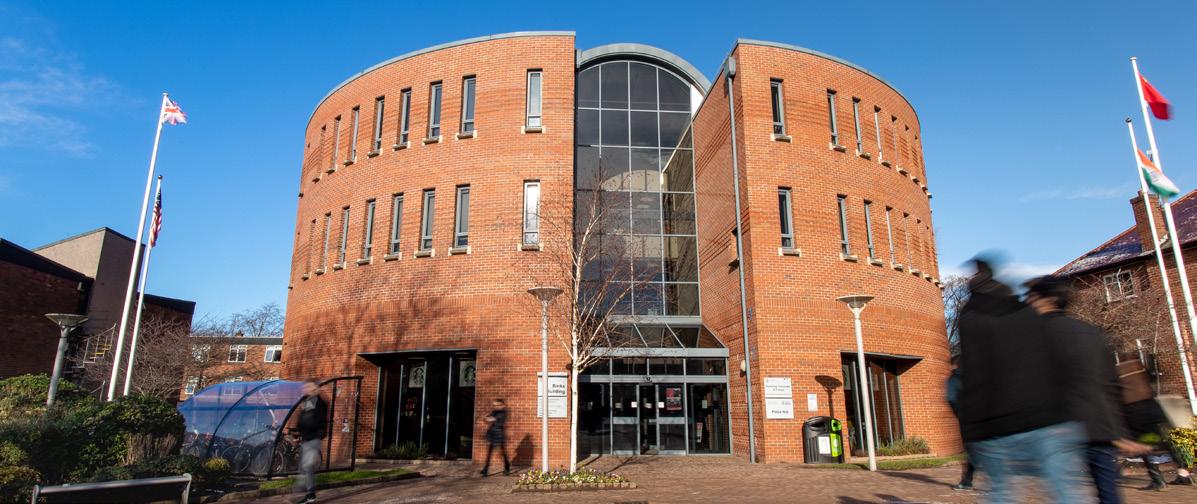
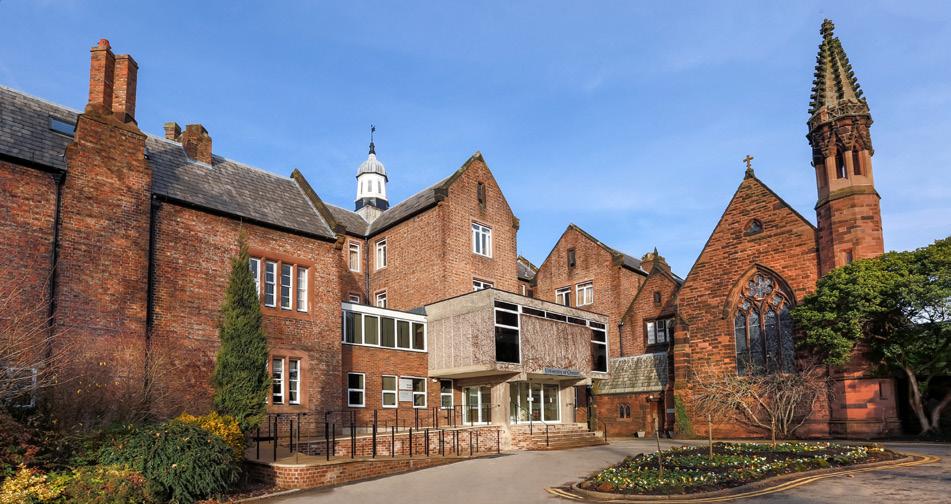
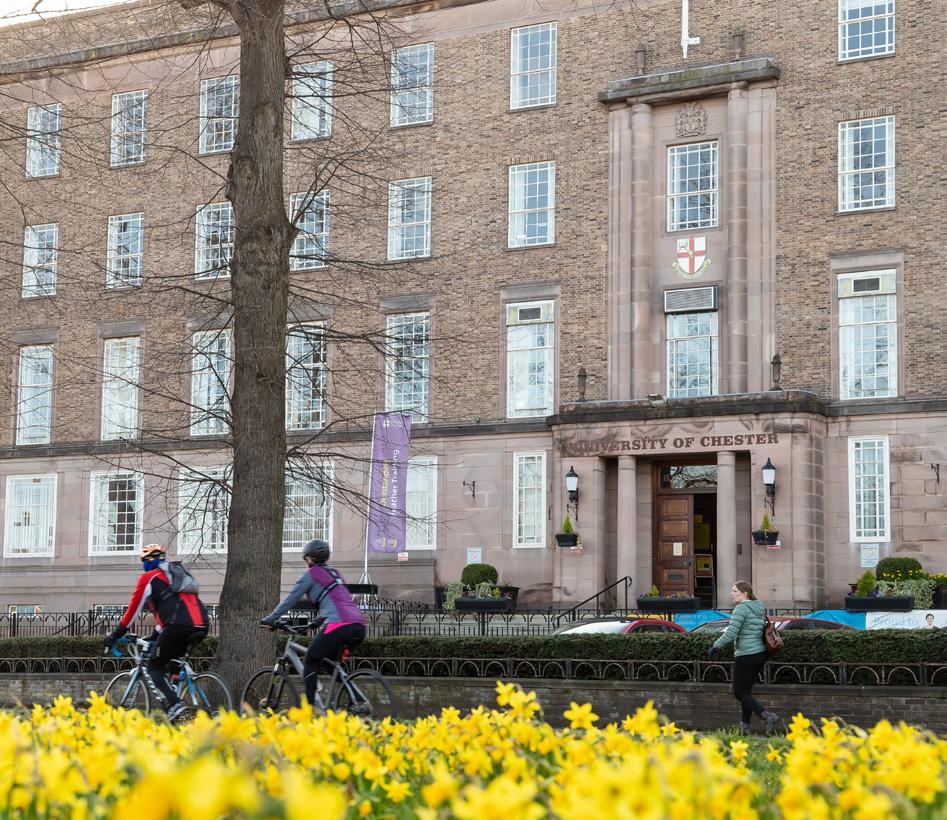
The Wheeler building contains our state-of-the-art anatomy and clinical skills simulation suite, plus staff offices and school administration for Chester Medical School. It also houses a range of other professionally focused subjects, including Health and Social Care, Education and Law. Just across the river is the University’s Queen’s Park building, which is home to the Chester Business School.
Information about our learning sites is available at: www1.chester.ac.uk/our-locations
Entry Requirements
At least a 2:1 Bachelor’s degree in any subject, or a 2:2 plus a Masters degree.
Meeting the minimum threshold mark in with either: UCAT, GAMSAT or MCAT.
IELTS 7.0 (maximum of two band scores at 6.0/6.5)
70 hours (the equivalent of around ten days) of prior work experience in a healthcare or allied setting, as a volunteer, or in a paid capacity, as a helper to someone with healthcare needs.
Evidence of experience working in a healthcare environment can include being a Care Assistant in a care home/hospital, a volunteer in a hospital, visiting someone in their home to care for them, and working in a hospital laboratory or other healthcare setting. This work experience must have taken place in the three years prior to the date of application.
Fees
The tuition fees for international students studying Graduate Entry Medicine in 2024/25 are £42,500 per year ( for four years). The University may increase fees in line with any inflationary uplift as determined by the UK Government, if permitted by law or government policy, in subsequent years of your course.
Please note, this course is not eligible for any University scholarship opportunities.

For further course information, please contact: Chester Medical School University of Chester medicine@chester.ac.uk chester.ac.uk/cms/medicine-graduate-entry Chester Medical School



 Foreword By Professor Arpan Guha Dean of
Foreword By Professor Arpan Guha Dean of
















